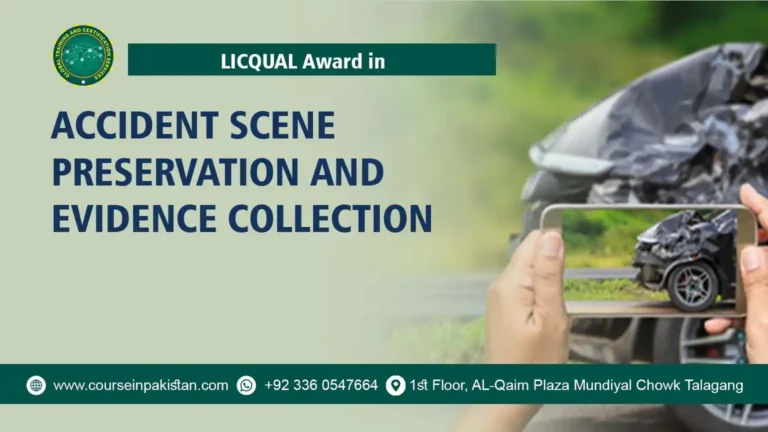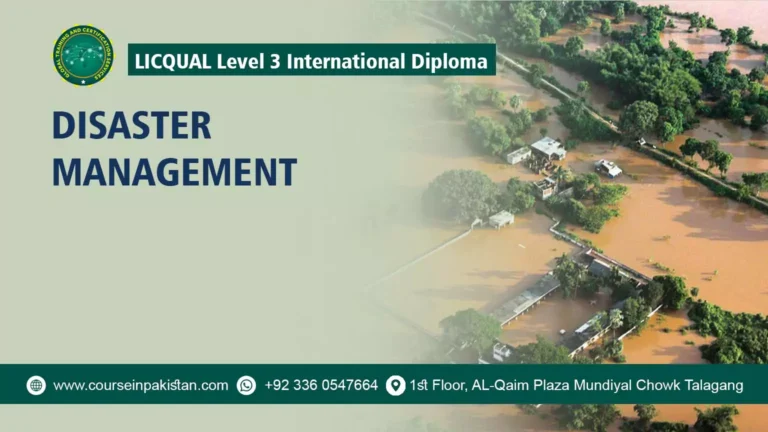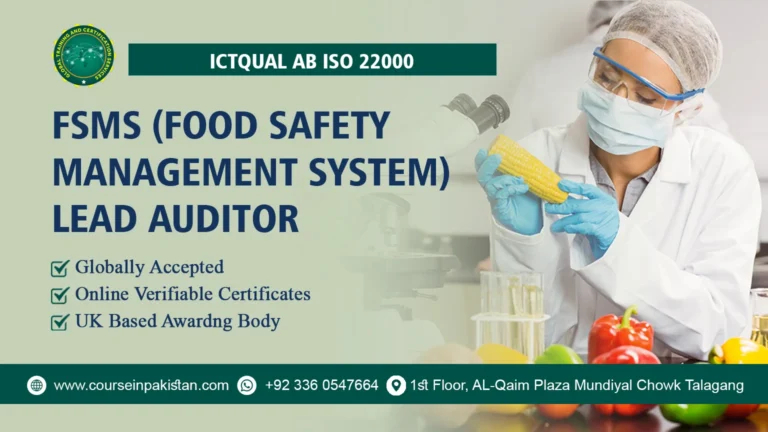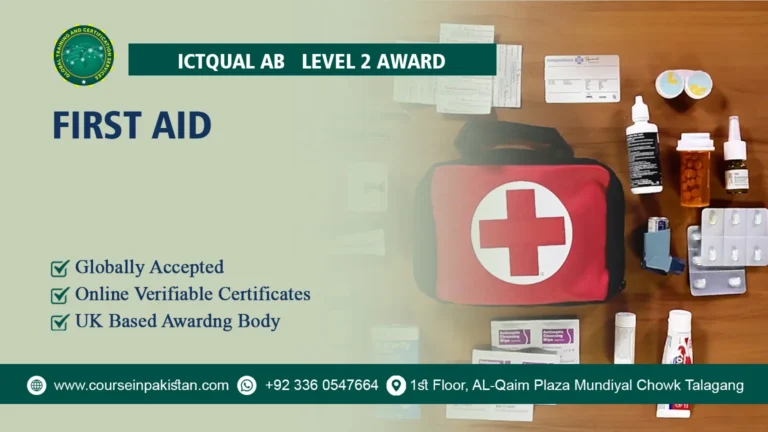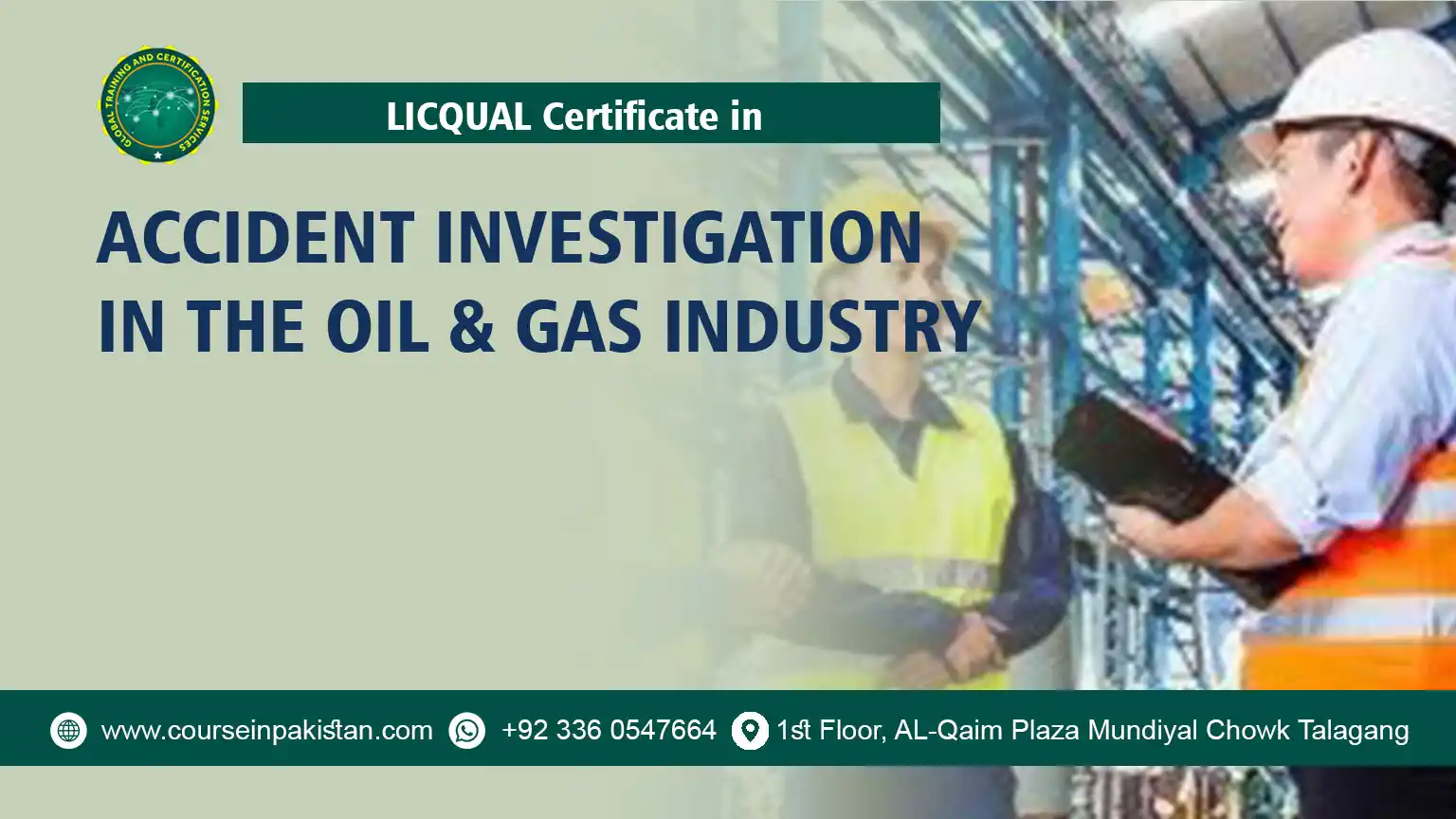
Certificate in Accident Investigation in the Oil and Gas Industry
Accidents in the oil and gas industry can have far-reaching consequences, impacting both personnel safety and operational integrity. The Certificate in Accident Investigation in the Oil and Gas Industry is designed to equip professionals with specialized skills to conduct thorough investigations, analyze incidents, and implement preventive measures. This course is crucial for ensuring safety, regulatory compliance, and continuous improvement within the oil and gas sector.
Course Overview
The certificate program provides participants with comprehensive training in accident investigation methodologies specific to the oil and gas industry. It covers essential aspects such as incident scene management, evidence collection, technical analysis, and reporting. Through a blend of theoretical knowledge and practical exercises, participants will gain proficiency in investigating various types of accidents and implementing effective safety strategies.
Course Benefits
- Specialized Expertise: Acquire in-depth knowledge of accident investigation techniques tailored to the oil and gas sector.
- Enhanced Safety Culture: Contribute to improving safety standards and operational practices within oil and gas facilities.
- Career Advancement: Earn a recognized qualification that opens doors to roles in safety management, regulatory compliance, and accident investigation teams.
Course Study Units
The Certificate in Accident Investigation in the Oil and Gas Industry typically includes study units such as:
- Introduction to Accident Investigation in the Oil and Gas Industry
- Regulatory Framework and Industry Standards for Incident Reporting
- Root Cause Analysis Techniques for Oil and Gas Accidents
- Human Factors in Oil and Gas Accidents
- Equipment Failure and Maintenance Issues in Accidents
- Data Analysis and Trend Identification in Incident Investigation
- Accident Scene Management and Evidence Collection
- Incident Reporting and Safety Management Systems
- Case Studies in Oil and Gas Accident Investigation
Learning Outcomes
Introduction to Accident Investigation in the Oil and Gas Industry
Learning Outcomes:
- Understand the fundamentals and objectives of accident investigation in the oil and gas sector.
- Identify key stakeholders and their roles in accident investigation processes.
- Recognize the importance of prompt and thorough investigation in preventing future incidents.
Regulatory Framework and Industry Standards for Incident Reporting
Learning Outcomes:
- Comprehend the regulatory requirements and industry standards governing incident reporting in the oil and gas industry.
- Apply knowledge of legal frameworks to ensure compliance and accountability in incident investigation.
- Navigate the complexities of regulatory reporting obligations to regulatory authorities and stakeholders.
Root Cause Analysis Techniques for Oil and Gas Accidents
Learning Outcomes:
- Utilize root cause analysis techniques specific to the oil and gas industry to identify underlying causes of accidents.
- Apply systematic approaches to determine contributing factors and sequence of events leading to incidents.
- Develop recommendations for corrective actions and preventive measures based on root cause findings.
Human Factors in Oil and Gas Accidents
Learning Outcomes:
- Analyze human factors and behavioral aspects influencing safety performance and decision-making in the oil and gas sector.
- Identify organizational influences, communication breakdowns, and human error contributing to accidents.
- Implement strategies to enhance safety culture and mitigate human factors risks in oil and gas operations.
Equipment Failure and Maintenance Issues in Accidents
Learning Outcomes:
- Assess equipment failures and maintenance issues that contribute to accidents in the oil and gas industry.
- Conduct technical analyses to determine equipment malfunctions, deficiencies, and operational failures.
- Recommend improvements to equipment maintenance practices and inspection protocols based on investigation findings.
Data Analysis and Trend Identification in Incident Investigation
Learning Outcomes:
- Utilize data analysis techniques to identify trends, patterns, and recurring issues in incident data within the oil and gas industry.
- Interpret statistical data and metrics to prioritize safety improvements and risk mitigation strategies.
- Implement data-driven decisions to enhance safety management systems and accident prevention measures.
Accident Scene Management and Evidence Collection
Learning Outcomes:
- Implement effective accident scene management protocols to ensure safety and evidence preservation in the oil and gas industry.
- Demonstrate proficiency in securing accident scenes and preserving physical evidence to maintain integrity and admissibility.
- Coordinate with emergency responders and stakeholders to facilitate timely and thorough investigation operations.
Incident Reporting and Safety Management Systems
Learning Outcomes:
- Develop comprehensive incident reports that document methodologies, findings, and recommendations in the oil and gas industry.
- Structure reports to effectively communicate investigation processes, causal factors, and safety improvement measures.
- Implement incident reporting systems and safety management practices to enhance incident response and prevention.
Case Studies in Oil and Gas Accident Investigation
Learning Outcomes:
- Analyze case studies and real-world examples of accidents in the oil and gas industry to extract lessons learned.
- Apply knowledge gained from case studies to enhance accident investigation techniques and preventive strategies.
- Synthesize findings from case studies to develop proactive measures for improving safety performance and operational resilience.
These learning outcomes equip participants with specialized knowledge and skills necessary to conduct thorough and effective investigations into accidents within the oil and gas industry. By mastering these study units, professionals are prepared to enhance safety, ensure regulatory compliance, and promote continuous improvement in accident prevention and incident management practices.
Who is This Course For?
The Certificate in Accident Investigation in the Oil and Gas Industry is suitable for:
- Safety professionals and accident investigators working in the oil and gas sector.
- Engineers, technicians, and managers responsible for safety management and incident response.
- Regulatory authorities and government officials overseeing safety standards in the oil and gas industry.
Future Progression for This Course
Successful completion of the certificate program opens pathways for career advancement and specialization within the oil and gas industry. Graduates may pursue advanced certifications in safety management systems, risk assessment, or environmental protection. Additionally, this qualification prepares individuals to lead accident investigation teams, contribute to policy development, and advance safety initiatives within oil and gas companies and regulatory bodies.
Certificate in Accident Investigation in the Oil and Gas Industry equips participants with critical skills to enhance safety, regulatory compliance, and operational excellence within this high-risk sector. By mastering advanced investigative techniques and methodologies, professionals play a pivotal role in safeguarding personnel, protecting the environment, and improving overall safety standards in oil and gas operations.
Ready to enhance your expertise in oil and gas accident investigation? Enroll in the Certificate in Accident Investigation in the Oil and Gas Industry today and embark on a rewarding journey toward ensuring safer workplaces and operational resilience.

